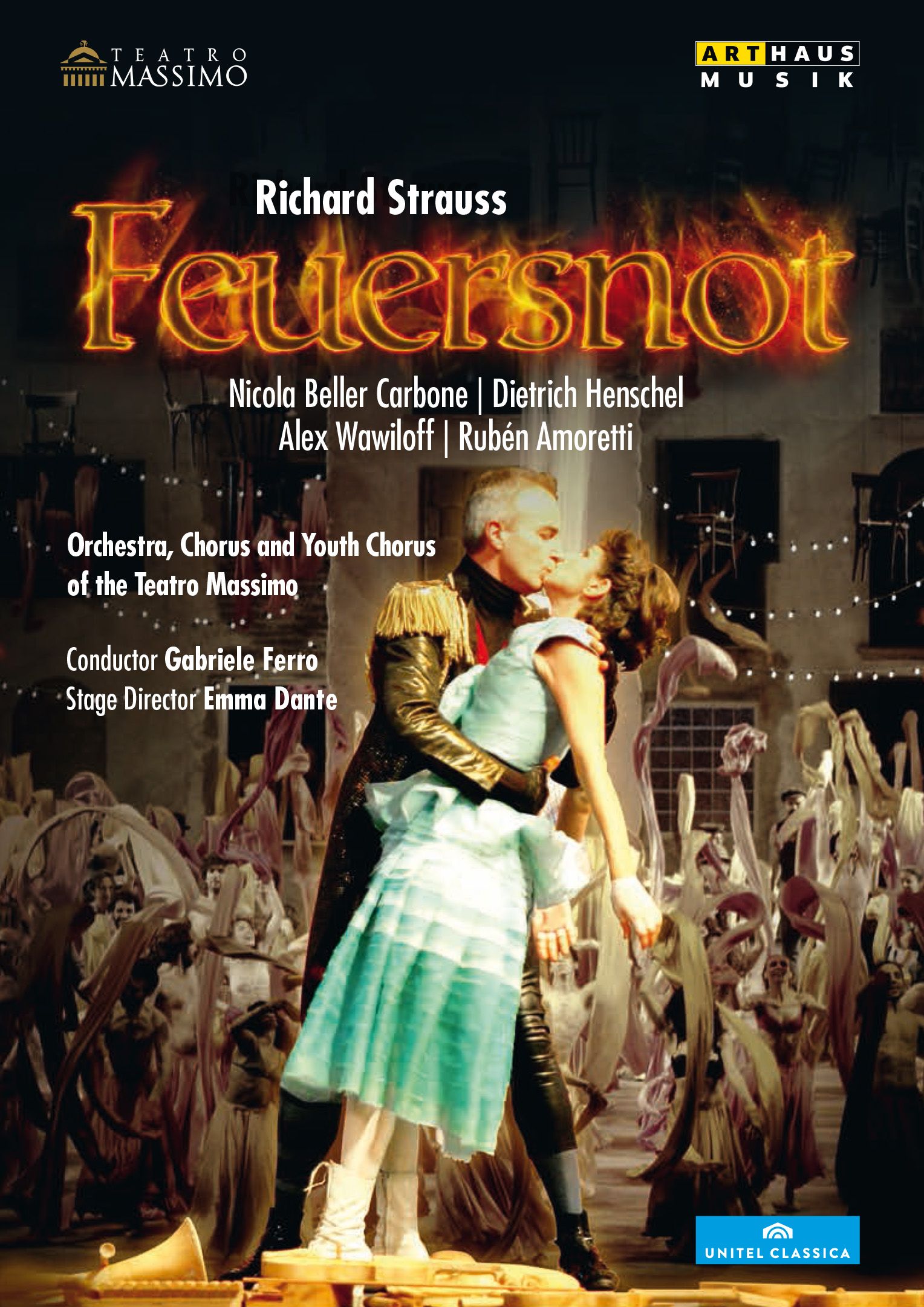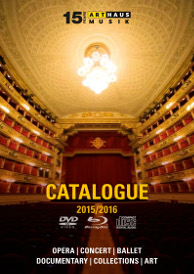
RICHARD STRAUSS - FEUERSNOT
Richard Strauss



Richard Strauss
RICHARD STRAUSS - FEUERSNOT
Teatro Massimo Palermo, 2014
Soloists:
Nicola Beller Carbone, Dietrich Henschel, Alex Wawiloff, Rubén Amoretti
Orchestra, Chorus:
Orchester, Chor und Jugendchor des Teatro Massimo
Conductor:
Gabriele Ferro
Director:
Emma Dante
Location:
Teatro Massimo Palermo
„Feuersnot“ is Richard Strauss’s second opera and made up for the failure of his first when its 1902 Dresden premiere was a resounding success. It is a lively one-act drama about the ancient Bavarian tradition of celebrating midsummer night with bonfires, songs and dances at the summer solstice – a work full of allusions. The score has quotations from Wagner and echoes of contemporary composers such as Mahler and Bruckner. Nonetheless, it is genuine Strauss – from racy waltzes to enchanting love duets. Conductor Gabriele Ferro acquits himself well in handling the complex score and keeping the balance between the pit and the crowded stage – the orchestra sounds marvellous. “Nicola Beller Carbone triumphs magnificently in the role of Diemut” (Forum Opéra) and Dietrich Henschel, in the role of her suitor Kunrad, sings a “full-voiced baritone” (Tagesspiegel).
Label:
Arthaus Musik
Genre:
Oper
Running Time:
113
Picture Format:
16:9
Sound Format:
PCM Stereo / Dolby Digital 5.1
Number of Discs:
1
Languages:
DE
Subtitle Languages:
DE, KOR, GB
EAN:
0807280906592
UPC:
807280906592
Blu-ray:
109066

Boris Blacher
On the surface it is a comic version of the “Hauptmann von Köpenick” story in which it is not the petty thief Wilhelm Voigt who carries off the prank but a respected member of society, the clerk Wilhelm Fadenkreutz. He is not a factory owner like Diederich Heßling, but definitely has many of the characteristics of the hero of “Der(...)

Richard Wagner
Richard Wagner’s early opera “Rienzi” is stylistically closer to Meyerbeer and bel canto than to Wagner’s later masterworks. Yet even this early work – especially as presented in this recording – is “so fantastically beautiful that it takes one’s breath away” (Berliner Zeitung). And in this staging by Philipp Stölzl, who(...)









 PDF Download (5,5 MB)
PDF Download (5,5 MB) PDF Download (6,7 MB)
PDF Download (6,7 MB)